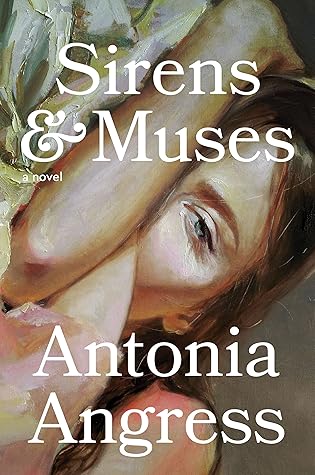More on this book
Community
Kindle Notes & Highlights
She’d chosen an ibis because Grandma had once told her that it symbolized resilience; it was the last animal to take shelter before a hurricane, and the first to reappear after the storm. “No, not resilience,” Mom had said, overhearing. “Regeneration. And wisdom.” Danger, Louisa thought. Optimism.
But Karina knew that it wasn’t enough to be excellent—you had to maintain that excellence over time, you had to make sure no one forgot about it, and most of all, you had to make it appear effortless.
“Look what we have,” said Bob Ross. “Look around. Beauty is everywhere.” “God,” Karina heard someone say. “His voice is like Xanax.”
“Are you a painter?” The barista shrugged. “Yeah.” “Is that your major? “It was. I graduated in 2007. Enjoy your tea.”
She tapped the cigarette pack against her palm and glanced at the smoke detector. “If we get caught you can blame me. I’ll tell them you couldn’t resist my siren song.”
She was so lonely sometimes she thought it might turn her feral,
she’d felt deliriously happy. The sensation was so unfamiliar that it almost felt like fear. It felt like losing control.
“No, no, I like it.” Louisa half smiled. She looked surprised. “You do?” “Yeah, it’s…chimerical.” At this, Louisa blushed, and a wave of want passed through Karina. “That means a lot, coming from you,” Louisa said quietly, almost as if to herself.
Karina cleared her throat. “It’s like a mythological creature that Louisa invented.” She paused. “I love it.” She felt the eyes of the entire class on her and realized dimly that this was the first time she’d publicly praised someone’s work. For the past year she’d opened her mouth in crit only to find fault.
Most of all, she liked the way Preston adored her. Because even though she found him intelligent and attractive, she didn’t adore him. And that, she knew, was the most important thing: to care less than the other person did.
When they saw each other in class or in the dining hall, they nodded and said hello, and if there was a strange anticipatory electricity when their eyes met, nobody but Louisa seemed to notice.
For the first time, Karina spoke of loneliness, of despair. She alluded to what had happened last year. “I felt unmoored,” she said. “Like something in my mind had become unhitched.” “And now?” Louisa said. Karina looked away. “I don’t know.” That was as much as she’d say.
Louisa let a long silence elapse before adding, “You don’t think you’ll ever see my art in a museum?” She knew it was a childish question even before she asked it. There was another long silence, during which Louisa wanted to disappear. Then Mom said, in a quiet voice, “I don’t know.”
All day long she’d expected to start feeling weepy and fragile, but instead, from the moment she woke up, she’d felt resolute.
And the longer Karina sat in the beam of her gaze, the more she sensed Louisa’s inwardness, the hermetic quality of her mind, the elusive way she glided through the world.
She wanted to keep this pure and good, like a very old painting preserved forever behind glass.
“Any painter can seduce their model. History is full of artists banging their muses.” Louisa shifted so that she was lying on her side. She draped her arm over Karina’s torso. “But those were all men seducing women.” “So?” “So there’s a difference,” said Louisa. “Don’t you think? The male gaze versus the female gaze and all that.” “You mean this is more equal?” “Yeah,” said Louisa, though she wasn’t sure that this was true at all, not in their case.
Everyone here lived crowded together, on top of one another in a way she’d never seen before. You could glimpse people’s whole lives through their windows.
“I can’t promise you’ll feel better if you go outside, but I can guarantee you’re gonna feel worse if you spend all day in bed.”
“Why did you leave Wrynn?” “Money,” said Louisa flatly. “You?” Karina shrugged. “I got offered representation, so it was, like, what’s the point of school?” Louisa pressed her lips together and looked away. Karina’s stomach sank. Her flippancy had been a mistake. She couldn’t act this way around Louisa: flippancy didn’t impress her.
Tongue-tied, Karina stared at her hands. She was doing it again. She was doing the thing that pushed everyone away.
“I think that the people we become infatuated with are the ones who have the qualities we want.”
“What did you say?” Karina said. Louisa opened her eyes. “I missed this.” “Me, too,” Karina said.
Karina liked that Louisa hadn’t just sent her a text message, that she’d left something tangible, something Karina could put in her pocket and look at throughout the day.
“But what do you feel when you’re painting, then?” Louisa said. “I feel like I’m someone else.” Louisa looked at Karina with an odd expression that she realized, with a jolt, was pity.
“I’m not intimidated by you anymore,” Louisa declared one evening. Karina laughed, trailing her fingers through Louisa’s hair. “Why not?” “You seem realer to me now.” “Realer?” “I can see the shape of you.”
Karina had offered to share her studio, her supplies, and, most crucially, her body. But Louisa’s proximity to success felt asymptotic. And she didn’t want to watch her own fantasy play out in front of her, not with someone else in the starring role.
Louisa considered the best way to extricate herself from this conversation. She’d been raised to be polite to a fault and had never really learned how to deflect unwanted male attention.
As she’d watched Louisa defend her, hurling accusations that Karina herself had never voiced, though she knew them to be true, she’d thought, Where have you been all my life? And the truth was that it scared her. It scared her to feel so loved.


